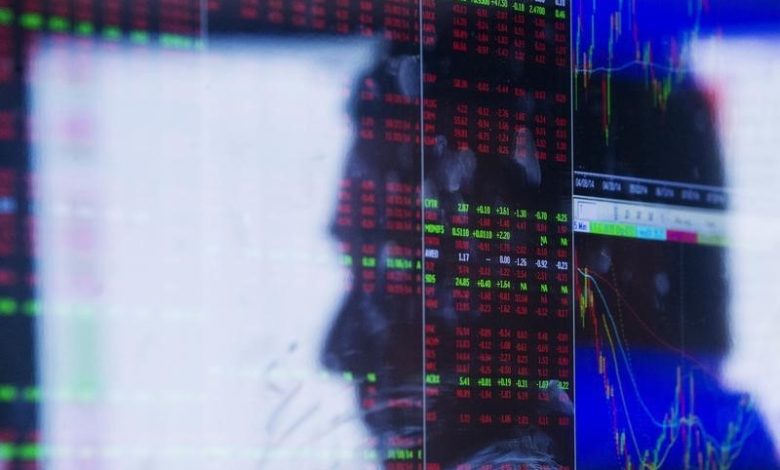
Year of War Weakens Israel’s Borrowing Power, Reports Reuters
By Libby George, Karin Strohecker, and Steven Scheer
LONDON/JERUSALEM – Israel’s economy has managed to weather nearly a year of turmoil due to ongoing conflict, which poses risks of escalating into a broader regional crisis. However, increasing borrowing costs are beginning to exert pressure on its financial foundations.
The direct financial burden of the Gaza conflict through August was around 100 billion shekels ($26.3 billion), according to the finance ministry. The Bank of Israel estimates this figure could swell to 250 billion shekels by the end of 2025, a projection made before Israel’s recent military actions in Lebanon against Hezbollah, which will further increase costs.
This situation has prompted downgrades in credit ratings, heightening economic challenges that may have long-lasting effects. The cost of insuring Israel’s debt against default is approaching a 12-year high, and the government’s budget deficit is expanding significantly.
“As long as the war continues, the sovereign debt metrics will continue to worsen,” noted Sergey Dergachev, a portfolio manager at Union Investment.
While Israel’s debt-to-GDP ratio was at 62% last year, the growing borrowing requirements are a concern. Dergachev remarked, “Even if Israel has a relatively good base, it will still be painful on the fiscal side, and over time, it will put pressure on the rating.”
Despite the challenges, Israel’s finance minister has asserted that the economy remains robust and believes credit ratings will recover once the conflict subsides.
The financial strain is exacerbated by the high costs associated with Israel’s Iron Dome defense system, extensive troop mobilizations, and robust bombing campaigns. This year, the debt-to-GDP ratio has risen to 67%, with the government deficit now at 8.3% of GDP, significantly higher than the previously anticipated 6.6%.
While core investors in Israel’s international bonds—such as pension funds and major asset managers—are not likely to divest in the short term, there is a noticeable narrowing of the investor base. Some investors privately express interest in selling Israeli bonds or abstaining from purchasing them due to concerns over the environmental, social, and governance (ESG) implications of the ongoing conflict.
In 2023, Norway’s sovereign wealth fund sold a small portion of its Israeli government bonds due to increased market uncertainty.
“What you do see reflecting these concerns is the valuations,” commented Trang Nguyen, the Global Head of Emerging Markets Credit Strategy at BNP Paribas, adding that Israeli bonds are trading with significantly wider spreads than bonds from similarly rated countries.
When approached regarding rising borrowing costs and ESG concerns, Israel’s finance ministry stated that government finances have been “effectively managed” since the conflict began. The ministry emphasized that Israel’s strong domestic market indicates a healthy demand for investment, and international investors remain familiar with Israel’s credit.
Although Israel’s domestic bond market is substantial and rapidly growing, foreign investment has seen a decline. Data from the central bank indicates that the share of bonds held by non-residents fell to 8.4% (approximately 55.5 billion shekels) in July, down from 14.4% (close to 80 billion shekels) in September of the previous year, all while the total amount of outstanding bonds increased by over 20%.
“Irish institutions have actually been purchasing more in recent months, while some global investors have sold bonds due to geopolitical tensions and uncertainty,” stated a finance ministry official, who preferred to remain anonymous.
Equity investors are also reducing their exposure, with data showing that international investors have been pulling back from Israeli funds since May 2023, following contentious judicial reforms, and this trend accelerated after the October 7 Hamas attacks. Global funds’ ownership of Israeli stocks is now at its lowest level in a decade.
Additionally, foreign direct investment into Israel has decreased by 29% year-on-year in 2023, marking the lowest level since 2016, according to data from a United Nations agency. Ratings agencies have signaled concern over the unpredictable impact of the conflict on future investments.
These developments have increased the necessity for local investment and government support. In April, the government committed $160 million in public funds to bolster venture capital for the crucial tech sector, which constitutes about 20% of Israel’s economy. This is in addition to other expenses related to housing thousands displaced by the conflict, many of whom are being accommodated in hotels that are empty due to a significant drop in tourism.
Displacements, worker shortages caused by military mobilization, and Israel’s restriction on Palestinian workers are posing challenges to the agriculture and construction sectors, hindering economic recovery. This has had a substantial impact, with economic growth plummeting more than 20% in the fourth quarter of last year, and the recovery has been slow. Recent data suggests that GDP remains 1.5% below pre-attack levels.
Despite these challenges, Israel has managed to raise funds fairly easily, having sold around $8 billion of debt in international capital markets this year. The country’s diaspora bond initiative is also on track for a potential record collection exceeding $2.7 billion.
Yet, rising borrowing costs, coupled with increasing expenditures and economic pressures, pose significant challenges ahead.
“There is room for Israel to continue managing through this situation, aided by a robust domestic investor base that can fund another sizeable deficit,” remarked Roger Mark, an analyst in the Fixed Income team at Ninety One. He added, “However, local investors are looking for at least some signs of consolidation efforts from the government.”
 GOOGL
GOOGL  META
META 


